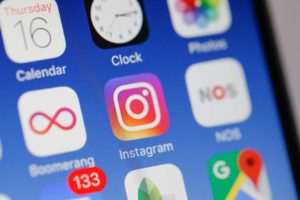
Instagram most negatively impacted young users’ sleep and body image. (Jaap Arriens/NurPhoto/Getty Images)
A new report says Instagram is the most detrimental to young people’s minds, with Snapchat coming close behind.
UK-based Royal Society for Public Health’s Young Health Movement released the study, called #StatusofMind, Friday, May 19, which surveyed the social media habits of 1,500 people ages 14-24.
The study said potential negative effects of using social media include anxiety and depression — the latter of which 80,000 UK youth suffer from — body image issues and the fear of missing out, also known as FOMO. Instagram included all these markers, including loneliness, bullying and poor sleep, on which Snapchat had nearly the same negative impact.
“[Social media] resulted in me not eating properly and losing a lot of weight and
becoming very depressed,” an anonymous social media user wrote in the report. “I finally recovered, which was hard for myself to be bullied online again in year 8.”
To counteract these issues, RSPH calls for a “pop-up ‘heavy usage’ warning” on social media websites to limit the time spent on them (as the study shows that more than two hours of use can lead to poor self-rating of mental health), notifications that an image has been edited and more research on the websites’ effects.
Not all social media had negative outcomes, however. YouTube is the most positive social media platform, followed by Twitter and Facebook; these websites fostered emotional support, community building and self-expression.
“Social media allows me to post and express myself in a way I can’t do in everyday life,” an anonymous user wrote in the study. “I can use it as a place to vent my feelings when I have no one to talk to.”


